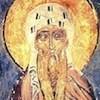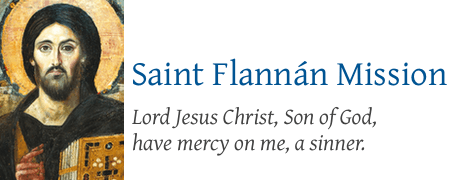 In the Name of the Father and of the Son and of the Holy Spirit, one God. Amen. Dear beloved, let us remember the Holy Venerable Akakios of Sinai. St Akakios, pray for us!
In the Name of the Father and of the Son and of the Holy Spirit, one God. Amen. Dear beloved, let us remember the Holy Venerable Akakios of Sinai. St Akakios, pray for us!
When many people of the contemporary world think of the words like “obedience”, “humility”, “endurance” and “suffering”, they would scorn at these words and what these words bring. To many, obedience, humility, endurance and suffering, are not virtues in their eyes. To many, being aggressive and competitive to win against others seem to be “virtues” instead.
But we of the faith know it to be very different, like we reflect upon Joshua 1:8-9.
What we have learned from the Holy Scriptures, the Gospel of Christ our Lord, and the many exhortations of holy fathers, martyrs and saints before us, tell us that obedience, humility, endurance, and suffering are part of being Christian.
Today, we commemorate the holy St Akakios of Sinai, a monk in the 6th century, who showed us the power of obedience, humility, endurance and suffering, and what salvific value it can bring to our journey towards God (St Luke 20:9-18).
The holy monk’s journey was brought to our knowledge through St John Climacus, whom we venerate in our Liturgy, who gave us the illuminating work “The Ladder of Divine Ascent” (or “Ladder of Paradise”). Although “The Ladder of Divine Ascent” was intended for the monastic life, the teachings are very much valued by all of us in the world as well, who seek the same journey of repentance and prayer towards God.
The monk was a novice at a monastery. He was patient and had unwavering obedience to his spiritual elder, who showed unkind behavior to the novice monk Akakios. The elder would force the novice monk to labor continuously, starved him, insulted him often, and beat him even. The monk endured everything, and St John Climacus praised and encouraged him for his suffering and obedience. Eventually, after suffering for 9 years under the elder at the monastery, St Akakios reposed.
Five days after he was buried, the unkind elder told about the monk’s death to another elder, who did not believe St Akakios was dead. The other elder called out to the grave of St Akakios, “Are you dead, brother Akakios?”
Miraculously, St Akakios, congruent with his total obedience, replied from his grave, “No, father, I am not dead. How can a person steadfastly obedient die?”
The unkind elder who was St Akakios’ elder realized his terrible mistakes and fell down to his knees in tears and begged forgiveness from his reposed disciple. He then went away to repent devoutly, denouncing his act of murder to his brethren.
In “The Ladder of Divine Ascent”, the rungs consist of:
- Renunciation of the world and obedience to a spiritual father
- Repentance and suffering as paths to true joy
- Defeat of passions and acquisition of virtues
- Avoidance of the traps of asceticism (laziness, pride, mental stagnation)
- Acquisition of hesychia (peace of the soul), of prayer, of apatheia (dispassion to suffering)
And we can see why St John Climacus told us of St Akakios, because the holy monk was an exemplary model to us in obedience, humility, endurance and suffering.
In our own ways and days in the world, do not despise obedience to our spiritual elders, for the fruition of obedience lies in wait for us from the Grace and Mercy of God Himself. Do not despise suffering, for suffering and our repentance brings us ever closer to God when we pray for a journey towards God and away from the snares of the evil one and the world (Psalm 95:1-8, LXX 94, 2 Thessalonians 2:13-3:5).
Let us pray His Holy Name often as we seek to find strength in obedience, as we proclaim His Holy Nativity in the coming weeks, making the Sign of the Cross, “Lord Jesus Christ, Son of God, have mercy on me, a sinner”.
Let us close by praying the thanksgiving prayer:
It is truly meet to call thee blest, the Theotokos, ever blessed and most pure, and the Mother of our God. More honorable than the Cherubim, and more glorious than the Seraphim, without corruption thou gavest birth to God the Word: True Theotokos, we magnify thee.
O virgin Theotokos, rejoice; O Mary full of grace, the Lord is with thee. Blessed art thou among women, and blessed is the fruit of thy womb, for thou hast borne the Savior of our souls, Jesus Christ our Lord. Amen.
Fr Raphael+
Readings
Joshua 1:8-9
Psalm 95:1-8 (LXX 94)
St Luke 20:9-18
2 Thessalonians 2:13-3:5

